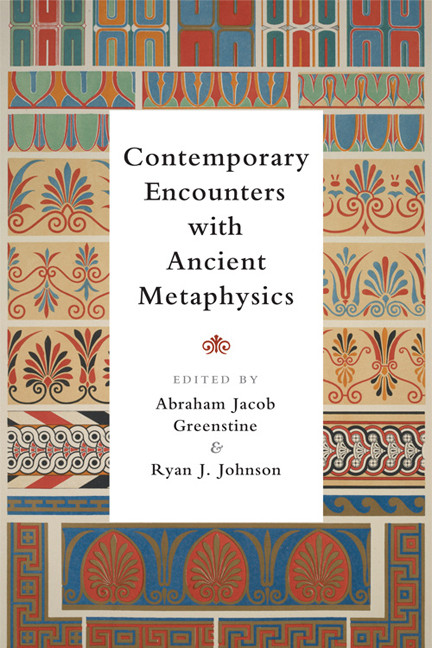18 - From Metaphysics to Ethics (with Bernard Stiegler, Heraclitus, and Aristotle)
Summary
“From metaphysics to ethics”: what kind of transition is signaled by this title? Certainly it is not a matter of progressing from an axiomatic foundation to its corollaries, or shifting attention from one discrete domain to another. Just as this volume has not explored unidirectional “influences” (Latin influo, “flow into”) from ancients to moderns, but rather cultivated their ongoing interactions, similarly we do not want to think metaphysics as a reservoir from which ethics are “derived” (Latin deriuo, “channel away”). Contemporary continental philosophies, like most Greek and Roman philosophies, tend to develop as complex Gestalten: metaphysical, ethical, and many other practico- theoretical facets co-emerge out of inchoate impulses, guided by various reflective practices. This could be illustrated from many preceding chapters. For example, to return to the middle of this book, and the beginning of Greek philosophy, Bartlett shows how the Parmenidean constellation of thinking, being, and not-being is reinvigorated in Badiou's “event.” Badiou's evental politics and erotics are not additions to this foundation, but other facets of the same emerging Gestalt. Similarly, on the daring but erudite reconstruction of Peter Kingsley, Parmenides’ ontology, like his poetic imagery, belongs to an entire program of initiatory rebirth. Thinking metaphysics and ethics together acknowledges the organic composition of so-called “first philosophy” with self-cultivation and self-conversion.
Rather than revisiting moments from the preceding chapters, in this postscript I would like to illustrate this point with a contemporary philosopher who has so far remained in this book's footnotes: Bernard Stiegler. Stiegler is best known for his philosophy of technics, which seeks to overturn “metaphysics,” that is transcendent and originary regimes of being and truth, on at least two fronts: first (1) he posits a “default of origin,” which all organismic systems endlessly supplement, thus transforming themselves toward a completion they never achieve; second (2) he emphasizes the ways in which human systems distribute themselves – their drives, desires, cognition, and so on – across technical objects. The upshot of (1) is that humans and the reality we disclose are always becoming, never fixed in being; the upshot of (2) is not only to entrench and complicate (1), since human self-supplementing is distributed across both social and technical organs, but also to implode most existing metaphysical schemes, since they exclude technology.
- Type
- Chapter
- Information
- Contemporary Encounters with Ancient Metaphysics , pp. 323 - 330Publisher: Edinburgh University PressPrint publication year: 2017

